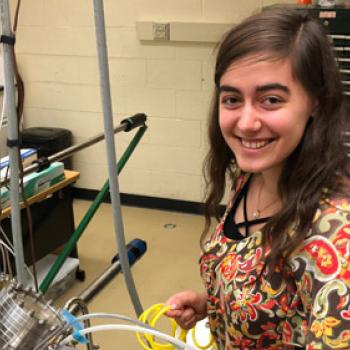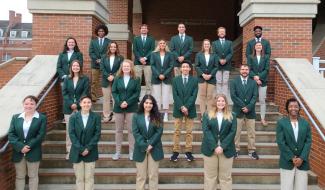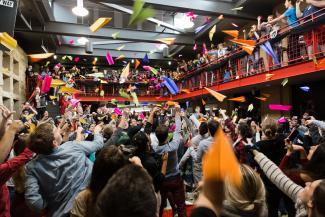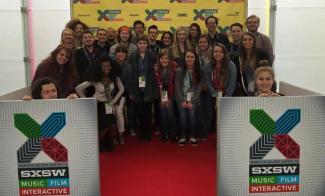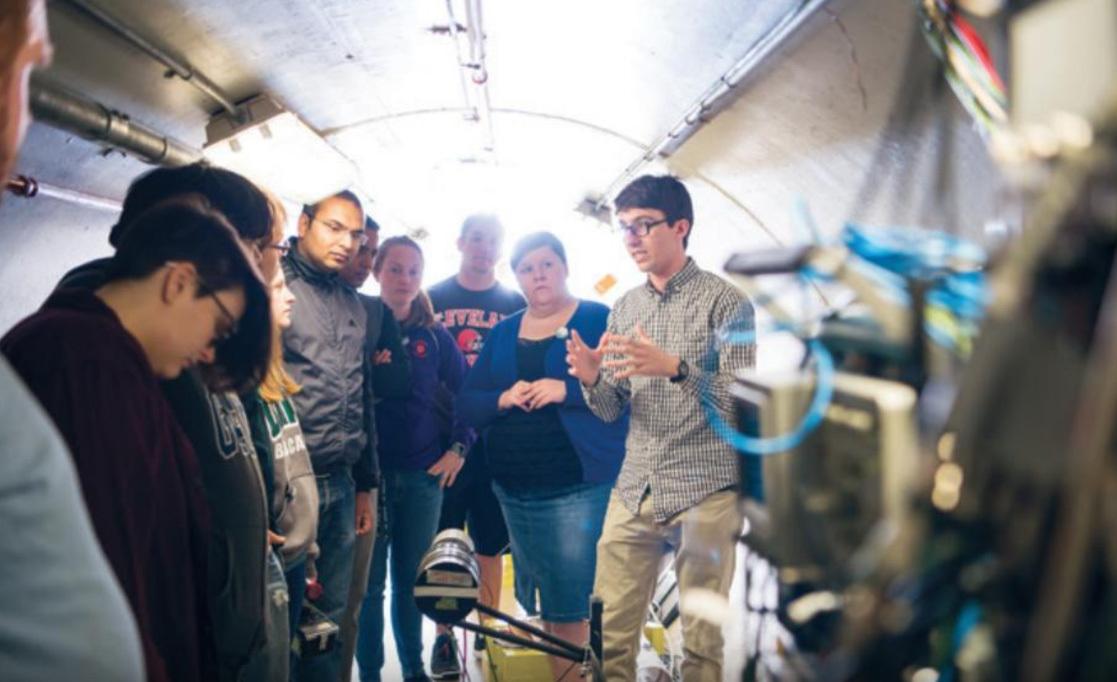

Work with World-Class Physicists
If you’re a physics and astronomy student, plan to get lots of research experience—from lasers to nano-materials. You might even want to work in the Edwards Accelerator Lab. Also plan on taking advantage of summer internships on campus or on location at a national lab or an NSF site.
Theoretical: If you enjoy mathematics and want a great educational experience that teaches you some very useful skills in math and programming, you might intern in theoretical physics, simulating explosions in neutron stars or investigating nanostructures.
Experimental: Undergraduate physics and/or physics and engineering dual major students also can work in world-class physics laboratories using scanning tunneling microscopy, synthesizing nanometer-thin materials, or even calibrating neutron detectors.
How to Find a Research Opportunity or Internship
There are many different pathways, including those listed above. Begin by with checking out individual faculty research areas to identify the kind of research that you might like to do. Then discuss your interest in research with the internships coordinator, Dr. David Tees , who can give feedback on your interests and suggest faculty to contact.
Details
Timing
Fall, Spring, Summer
Academic Credit
Some options have academic credit.
Cost & Scholarship Availability
On-campus opportunities during the semester may be covered in the cost of tuition. Summer opportunities may include a stipend but also may incur living expenses
Testimonial
What did I learn?
“I definitely learned some patience! We had a lot of mishaps and issues as the summer wore on, and I became adept at thinking of solutions to mechanical problems, as well as learning the techniques needed to properly “bake out” vacuum chambers, where we grow our samples, to make sure that the pressure inside is as low as we can get it.”
--Alexandra Semposki, B.S. in Physics 2019, M.S. in Physics 2021, working in Dr. Arthur Smith’s lab.
